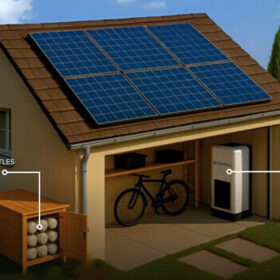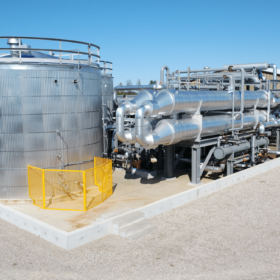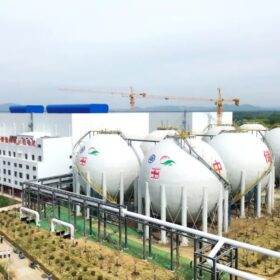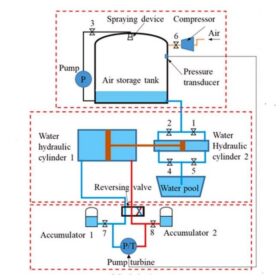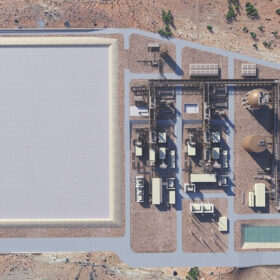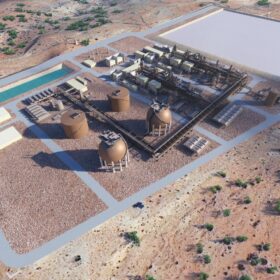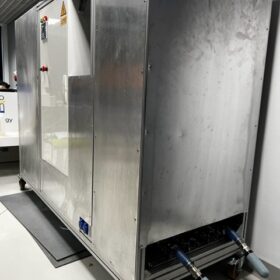Segula presents compressed air storage system for residential applications
The system consists of a reversible compressor connected to a storage unit that can be installed indoors or outdoors. The compressor must be connected to the solar panels, with the whole system being controlled by an application that optimizes self-consumption.
Australia gives go-ahead to its first compressed air storage project
Broken Hill is closer to becoming one of the world’s largest renewable energy microgrids with the New South Wales (NSW) government giving planning approval for a compressed air energy storage (CAES) facility near the historic mining town.
World’s largest compressed air energy storage facility commences full operation in China
A 300 MW compressed air energy storage (CAES) power station utilizing two underground salt caverns in central China’s Hubei Province was successfully connected to the grid at full capacity, making it the largest operating project of the kind in the world.
PV-driven drip irrigation system with compressed air storage
The proposed system uses compressed air to store energy, as well as for the prevention of clogging in the irrigation tubes. Two experimental systems were built and tested in China and clogging was reduced by up to 93%.
World’s largest compressed air energy storage project comes online in China
Zhongchu Guoneng Technology Co., Ltd. (ZCGN) has switched on the world’s largest compressed air energy storage project in China. The $207.8 million energy storage power station has a capacity of 300 MW/1,800 MWh and uses an underground salt cave.
Integrating pumped hydro with compressed air energy storage
A group of Chinese researchers has made a first attempt to integrate pumped hydro with compressed air storage and has found the latter may help the former to better deal with large head variations.
Compressed air energy storage at a crossroads
Compressed air energy storage (CAES) is considered a mature form of deep storage due to its components being firmly “de-risked” but few projects are operating in the Western world. A project in the remote New South Wales town of Broken Hill promises to lead the way.
Australian town to host 200 MW/1,600 MWh compressed air storage facility
Canada’s Hydrostor has struck a deal to provide backup power to a remote town in the Australian state of New South Wales by using a compressed air energy storage plant that will be built in an underground cavern at one of the region’s closed mines.
Hydrostor strikes deal for compressed air energy storage facility in Australia
Hydrostor has signed a deal with miner Perilya to build a 200 MW/1,600 MWh advanced compressed air energy storage facility in a disused mine cavity in New South Wales, Australia.
Micro compressed air storage system for residential, industrial applications
A Polish research team has developed a micro compressed air storage system that could be used in residential and industrial buildings where additional low-temperature waste heat is available. The system is claimed to have optimal control of the compressed air expansion process performance via pulse width modulation (PWM).
